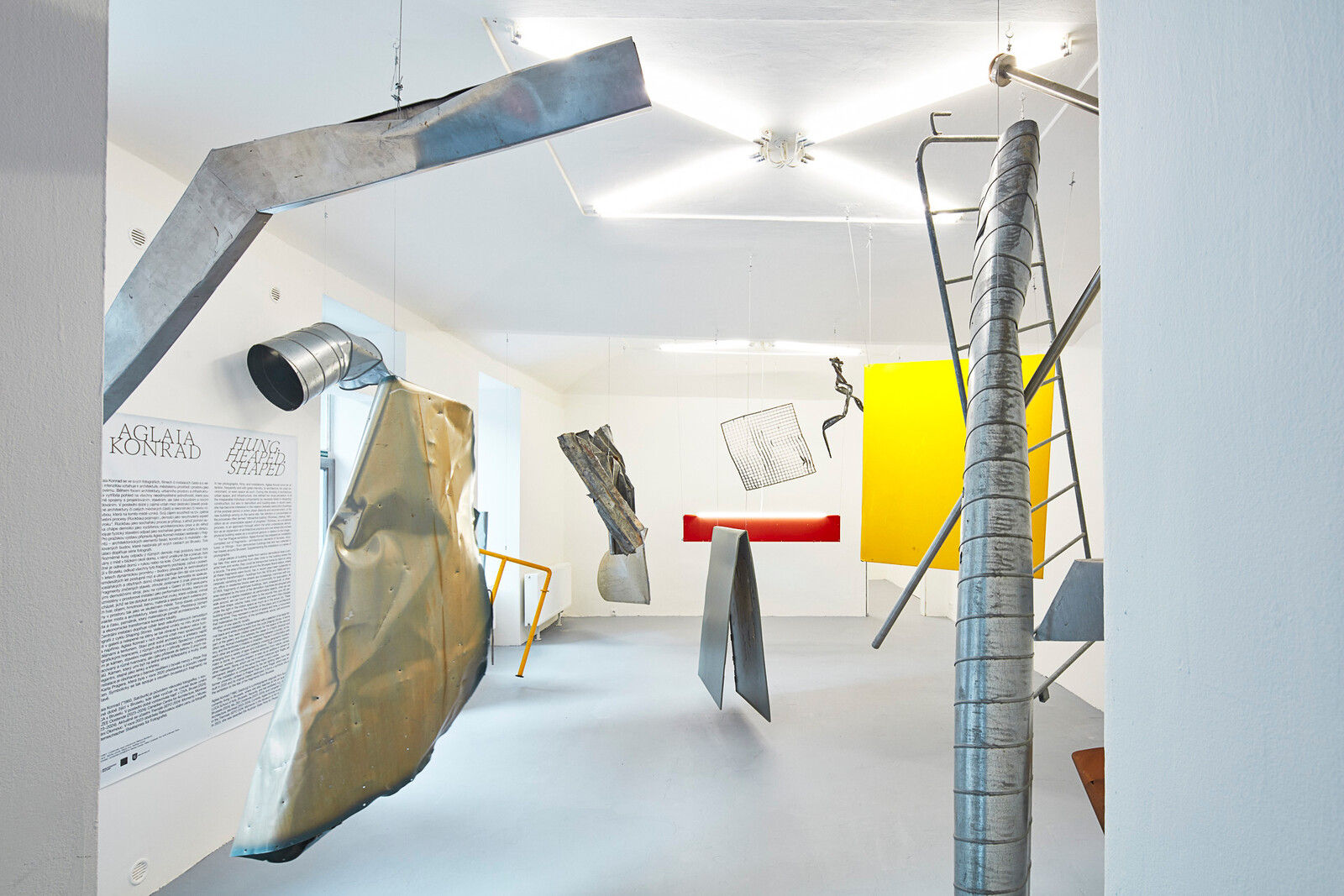Hung, Heaped, Shaped
September 18–November 9, 2024
Vítkova 2
18600 Prague
Czech Republic
Hours: Wednesday–Friday 1–7pm,
Saturday 2–6pm
In her photographs, films, and installations, Aglaia Konrad turns her attention, frequently and with great intensity, to architecture, the urban environment, or even space as such. During the shooting of architecture, urban space, and infrastructure, she refined her visual perception of all the inseparable individual components by necessity linked to designing, construction, but also to demolition and building anew. In recent years, she has become interested in the relation between destruction (buildings of the postwar period or entire urban districts) and reconstruction, or the new buildings arising on the same site. Her attention is concentrated on the processes often termed “retroactive building” (Rückbau), viewing “demolition as an unavoidable aspect of progress.” Rückbau, as a sculptural process, is an approach through which the artist understands demolition as an expansion of architectural practice and one where she involves physical building waste as a sculptural gesture in relation to the image.
For her Prague exhibition, Aglaia Konrad has prepared an installation compiled out of fragments—architectonic elements of facades, structures, or fittings—from demolished buildings that she has collected in her travels around around Brussels. All these fragments were found around the North Station, which has in recent years been subjected to a dynamic transformation—buildings from the 1970s 1990s are successively vanishing. Demolition follows demolition, rebuilding follows rebuilding, streets are increasingly crammed with ever more oversized luxurious office or residential blocks seen as a commodity for speculation. A building’s lifespan is shorter and shorter. At VI PER, the pieces of destroyed buildings, bent, snapped-off, or otherwise reshaped by the force of the demolition machines are grouped and positioned in a spatial installation as performative objects, ones we can walk around, we can touch and listen to the sounds they give off, perceive their shape, volume, mass, material, or watch their changes under the light in the indoor space as much as in the actual city. They create an architectural infrastructure of deformed shapes that passed through destruction and won themselves new qualities, characteristics, worth, value. This bank of materials underscores the unrelenting force of construction economics. These building-scraps preserve the character of the place and of architecture long vanished. They represent a record of space and time, a monument that materializes the memory of the architectural, social, and economic situation of one specific locality.
The central installation is supplemented with a selection of six large-format black-and-white photographs from the cycle Shaping Stones. These photographs have been taken successively since 2008 and in them, Konrad investigates the relationship between a society, its history, and the territories it inhabits or inhabited. Placed in confrontation with each other are architectures and artefacts crossing geographic borders, emerging from a variety of ages and civilizations. Their common denominator is stone, the construction material extracted from nature: carved, polished, worked, variously shaped, or even as an additive in concrete or other materials. Stone, which can be in certain instances light, fragile, yet permanent, elegant, and at the same time heavy and coarse.
Aglaia Konrad (b. 1960, Salzburg) is a photographer originally from Austria, currently living in Brussels, where she also teaches at the art academy LUCA School of Arts, Brussels. Recently, she has exhibited, e.g., at CIVA, Brussels (2024); Mu.ZEE Oostende (2023–24); Canadian Centre for Architecture, Montreal (2023–24); Austrian Cultural Forum, Warsaw (2023); Künstlerhaus, Vienna (2023). She has also published several artist’s books, such as Japan Works (2021), Schaubuch: Skulptur (2017), Aglaia Konrad from A to K (2016), Desert Cities (2008), or Elasticity (2002). Currently, Aglaia Konrad is participating in the Triennale SEFO 2024: Moments in the Museum of Art in Olomouc. In 2023, she was awarded the Austrian State Prize for Photography (Österreichischer Staatspreis für Fotografie).
Curators: Irena Lehkoživová, Barbora Špičáková











